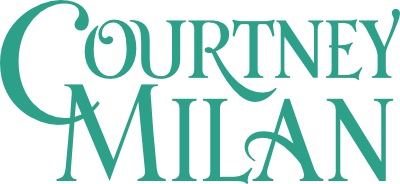I have a set of pet peeves about the discussion of legalities in 19th century Britain.
One of those pet peeves looks like this: “A married woman was the property of her husband.” Or sometimes, even more explicitly, “a woman was her husband’s chattel.”
My problem with this is that it’s not true. No one educated in the Regency or Victorian period would have claimed that a woman was her husband’s property. And, in fact, if you read Mary Wollstonecraft’s “Vindication of the Rights of Women,” she does an admirable job of listing many of the problems with a woman’s place in the world, but she never once claims that women were a husband’s property.
The notion that women back then were like property is actually (a) either fairly modern; or (b) based on misapprehensions that were not mirrored in law, and were, in fact, punishable if acted upon.
For instance, there were some people back then who believed they could sell their wives. These people were wrong and ignorant; they could not. Some people today believe that the payment of income tax is voluntary. Those people are wrong, too. (In point of fact, if you go to that site, there’s a $300,000 challenge that they offer: identify the law that says you have to pay income taxes, and we’ll give you $300,000! I’m guessing that they somehow missed 26 U.S.C. § 1, and I would like my $300,000, thank you.) To give the wife-sellers’ views legal credence is like looking back on the U.S. 200 years from now and saying, “Gosh, it’s amazing that all those people voluntarily paid income tax.”
So let’s go to the first point: that the notion that a woman was property is a modern gloss on the actual situation. A wife was never considered a husband’s chattel. There are things you can do with chattels that you could never do to a wife. For instance, you can give chattels away. You can destroy them. You can sell them. On the other hand, if a man in Victorian England walks away from his wife, she has the right to go to an inn and order food…and he will be stuck with the bill. Even if he has not seen his wife for years, she can send bills for her necessary expenses to her husband, and if those expenses are necessary to her station in life, he will have to pay them. Likewise, it would have been illegal to dispose of his wife. She wasn’t alienable.
This is not to say that women’s place in society was equal to the man’s. The true relationship between husband and wife was actually closer to feudal lord and vassal. The husband was in charge of his wife, and was her legal face to the rest of the world. In some ways, this shielded the wife from many of her decisions; if she spent rashly, her husband would have to take the heat. In other ways, this left her with little recourse; she couldn’t sue her husband if he failed to pay her pin-money agreed upon (although she could sue his estate for the value of the money if he eventually died), and he had the right to control where she lived and to some extent, how. I wouldn’t have wanted to live in those times, and I’m thankful I did not.
But however inequitable the situation was, and it was awful, wives in Victorian England were not considered property–not by anyone except a handful of very ignorant, uneducated people. The notion that women were a husband’s property is actually quite modern–and it’s very much a function of our modern view of property as a set of rights.

Wife-selling was always officially illegal–but it certainly happened, and appeared to be a sort of half-socially-sanctioned, unofficial form of divorce from the 16th-19th century as well.
The 2nd Duke of Chandos apparently purchased his 2nd wife, an inn chambermaid, in a wife-sale (although he had to wait until her husband died to officially marry her). The story is so preposterous that if you did write a romance about it, everyone would complain about how historically inaccurate it was.
http://en.wikipedia.org/wiki/Henry_Brydges,_2nd_Duke_of_Chandos
http://en.wikipedia.org/wiki/Wife_selling
I don’t deny that wife-selling happened any more than I deny that some people refuse to pay taxes–and I think it got about as much social credence: Lots of people liked the idea; few put it into actual practice.
Great thought provoking post. Didn’t Thomas Hardy deal with the illegal ‘wife selling’ issue and all it’s dire consequences in “The Mayor of Casterbridge?” I wonder if a lot of our modern assumptions about this practice come from an incomplete understanding of that novel?
Thanks for this analysis Courtney – this “women as chattels” thing has always bothered me as well. I think that it is more accurate to say that English law (and by extension the laws of the colonies and Dominions such as Canada) did not recognize women as “persons” and as such women did not have equal status under the law (except for that which they were given by parliament). This issue was finally decided in Canada in 1930 when women were finally recognized as “persons” – here is the wikipedia article on the history and results “Persons case” http://en.wikipedia.org/wiki/Edwards_v._Canada_(Attorney_General). This case was ultimately decided by the Privy Council in Britain (which was the highest court of appeal for Canada at the time),
As an adendum to the above – in 1876 a British Court ruled that “Women are persons in matters of pains and penalties, but are not persons in matters of rights and privileges.”